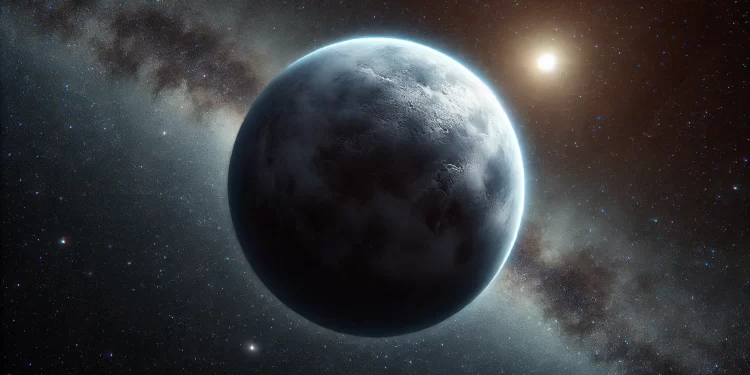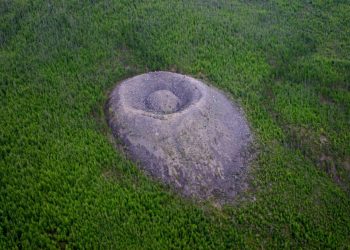The search for the elusive Planet Nine has fascinated astronomers for years, with many speculating that this mysterious world lurks in the far reaches of our Solar System. Now, with the Vera C. Rubin Observatory set to begin operations in 2025, the possibility of finding this hidden planet seems more promising than ever.
Caltech astronomer Mike Brown, who helped formulate the Planet Nine hypothesis, believes the discovery could happen soon. In a recent interview, Brown stated, “It is very possible that Planet Nine will be found within the first year of the Vera C. Rubin Observatory’s operation.” If true, this could redefine our understanding of the outer Solar System.
Why Do Astronomers Think Planet Nine Exists?
The idea of Planet Nine stems from peculiar gravitational effects observed in the outer Solar System. For instance, in 2004, astronomers discovered that Sedna, a distant object beyond the Kuiper Belt, had an unusually elongated orbit. This led scientists to hypothesize that an unknown massive object might be influencing Sedna’s trajectory. Further discoveries, like the 2012 VP113 object, showed similar orbital patterns, strengthening the case for a ninth planet.
According to Brown, “the most distant objects in the Kuiper Belt are all clustered in one direction, suggesting a hidden planet may be shaping their orbits.” While no direct observation of Planet Nine has been made yet, its gravitational effects resemble those of other unseen cosmic phenomena, such as dark matter. You can learn more about this gravitational mystery by exploring how dark matter shapes galaxies here.
Will Planet Nine Be Found Soon?
Unlike the elusive nature of dark matter, Brown believes Planet Nine might be directly observable in the near future. As explained by Interesting Engineering, the Vera C. Rubin Observatory, with its powerful 8.4-meter mirror and 3,200-megapixel camera, is designed to survey the night sky in unprecedented detail. This new ground-based telescope could finally reveal the planet’s presence—or potentially rule out its existence altogether.
Brown explained that space-based observatories like the James Webb Space Telescope, while revolutionary, aren’t equipped to search large areas of the sky for faint objects. Ground telescopes, like Rubin, are better suited for this task. Rubin will map the sky rapidly and in high resolution, covering vast areas that might include the hidden Planet Nine.
Explore how new telescopic technologies are revolutionizing our understanding of the cosmos here.
What Could Planet Nine Teach Us?
If Planet Nine is discovered, it could have far-reaching implications for astronomy. Brown speculates that the planet may resemble Neptune, though its true nature remains unknown. “We could be totally wrong,” he says, “it might even be a giant ice ball.”
The potential discovery would not only provide a deeper understanding of the Solar System but also offer insights into planetary formation beyond our system. Planet Nine, with an estimated mass seven times that of Earth, would be a unique addition to our planetary family. Interestingly, this mass is common among exoplanets throughout the galaxy, giving us a chance to study this type of planet up close for the first time.
Learn more about the future of planetary exploration and the impact of potential discoveries here.
Does Planet Nine Really Exist?
While Brown and his team are optimistic, not all scientists are convinced of Planet Nine’s existence. Samantha Lawler, an astronomer from the University of Regina, suggests that the apparent clustering of orbits might be due to observational bias. Lawler, who participated in the Outer Solar System Origins Survey (OSSOS), pointed out that their findings didn’t show the same orbital patterns supporting Planet Nine.
Despite skepticism, Brown embraces the scientific debate. He acknowledges that astronomers must remain skeptical, especially when such a groundbreaking claim is at stake. Ultimately, the question of whether Planet Nine exists will be settled once we either observe it—or definitively prove that it’s not there. What do you think? Could we be on the verge of a major discovery, or is Planet Nine just a cosmic mirage? I would love it to be real, as it would mean there are many, many other potential objects out there, waiting to be found.











